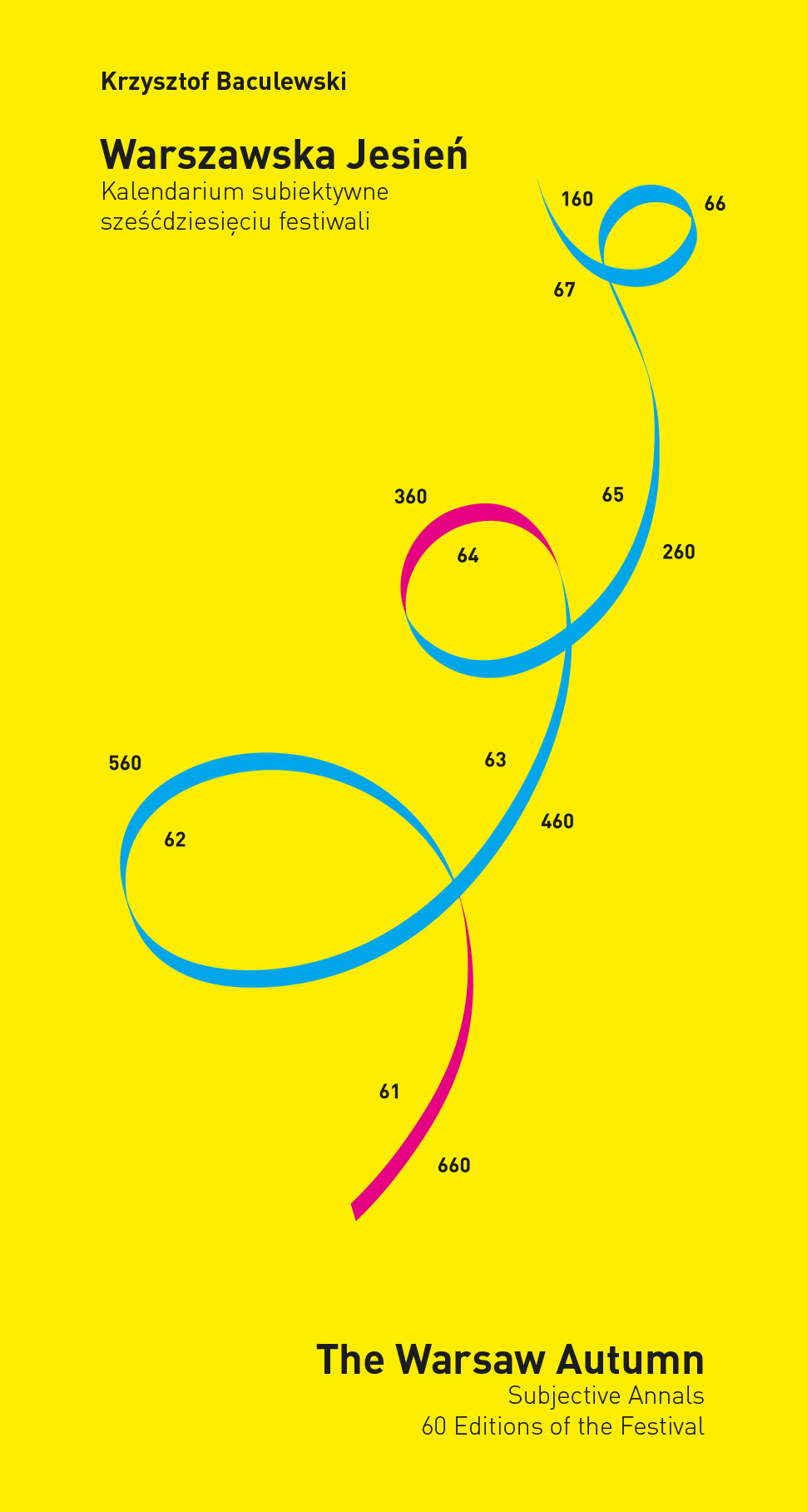
Krzysztof Baculewski "Subjective Annals 60 Editions of the Festival"
The slogan 'Opera Operations' (the Polish version was 'In the Fumes of the Opera') brings to mind associations with the prewar volume by Julian Tuwim and Antoni Słonimski In the Fumes of Absurd. This was not so far removed from operatic culture, but it is not this aspect of the opera that the 'Warsaw Autumn' programme authors wished to emphasise. ere have been literary inspirations in the presented spectacles: Mann's The Magic Mountain in Paweł Mykietyn's opera, Elfriede Jelinek's prose in Olga Neuwirth's Lost Highway, Sophocles' Electra in Iannis Xenakis' Polla ta Dhina, a play by Michel de Ghelderode in György Ligeti's Mysteries of the Macabre, Albert Camus' Le malentendu in Fabiàn Panisello's composition, and the biography of Gesualdo da Venosa in Salvatore Sciarrino's Luci mie traditrici. Naturally, voice manifests itself in these works in various ways, and its uses go beyond the traditional sphere, as does the application of literary texts derived from different sources, traditions and contexts. Apart from the operas, the Festival also featured other works, such as Philippe Hurel's Tour à tour, Grażyna Pstrokońska-Nawratil's Rain Forest, Edgard Varèse's Tuning Up, and Aureliano Cattaneo's Violin Concerto. A new outstanding talent emerged in the field of music interpretation - the soprano Joanna Freszel, who won the audience's hearts with her daring performance of Ligeti's scene. Wojciech Błażejczyk made his debut with Trash Music and - for contrast, one might say Zo a Dowgiałło with her subtle orchestral Composition with Motion Background. The 'Little Warsaw Autumn' - by now an obligatory segment of the Festival - offers music and related games and plays to the youngest audience, thus filling a gap in children's education concerning contemporary music. It teaches how to perceive, and make contact with, contemporary music and other arts, proving that they do not necessarily have to be elitist, alien or incomprehensible.